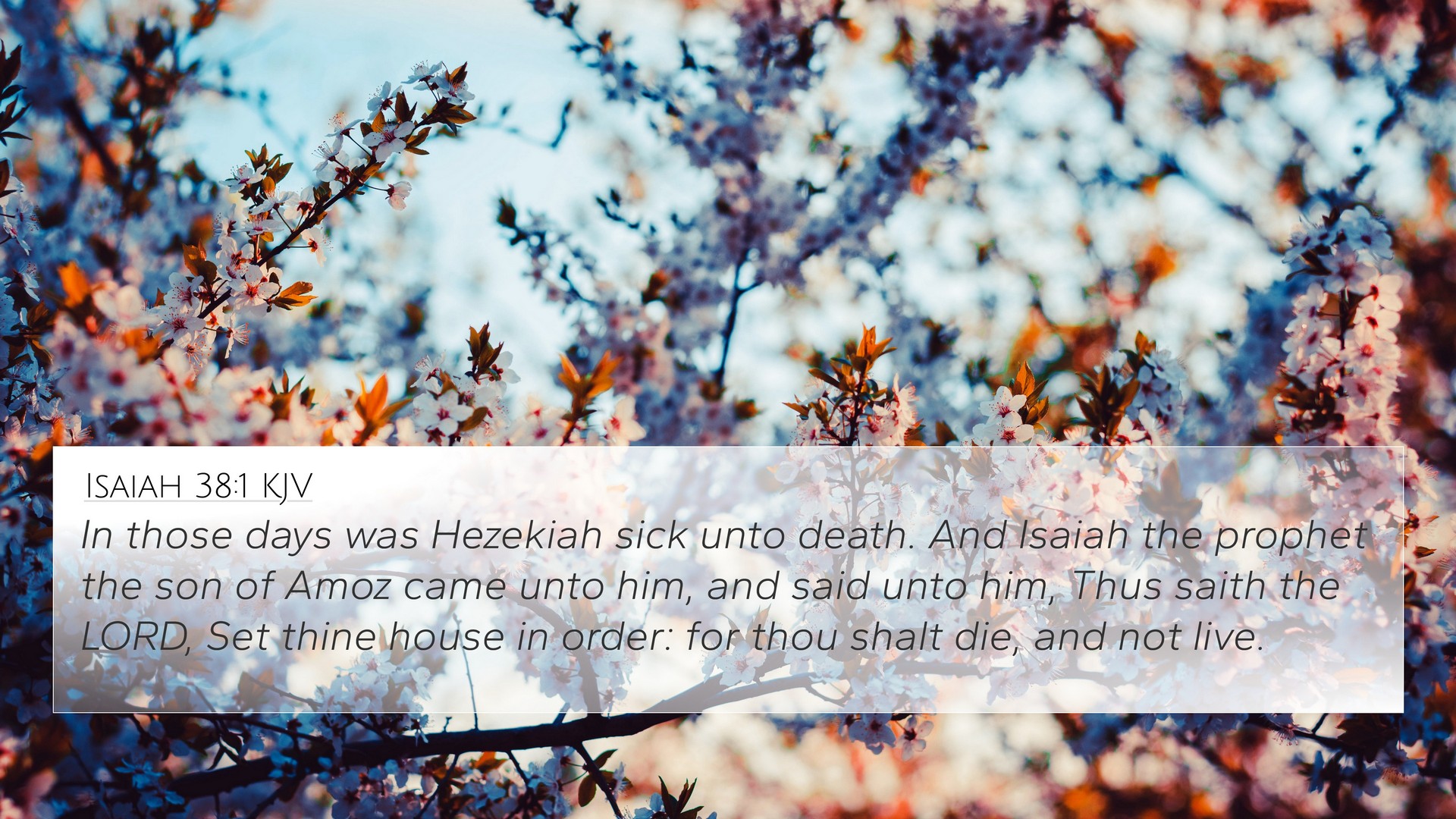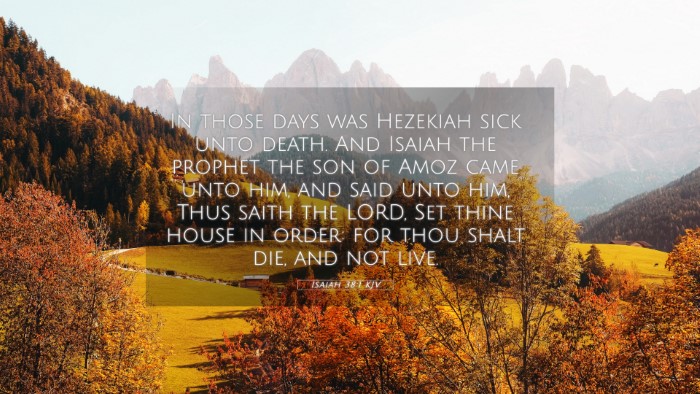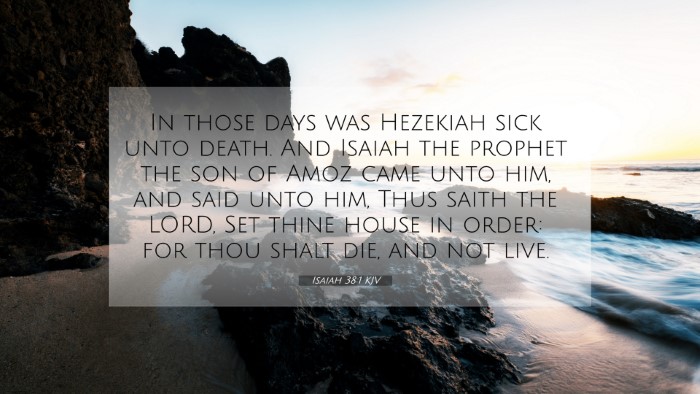This section features a detailed cross-reference designed to enrich your understanding of the Scriptures.
Below, you will find carefully selected verses that echo the themes and teachings related to Isaiah 38:1 KJV. Click on any image to explore detailed analyses of related Bible verses and uncover deeper theological insights.
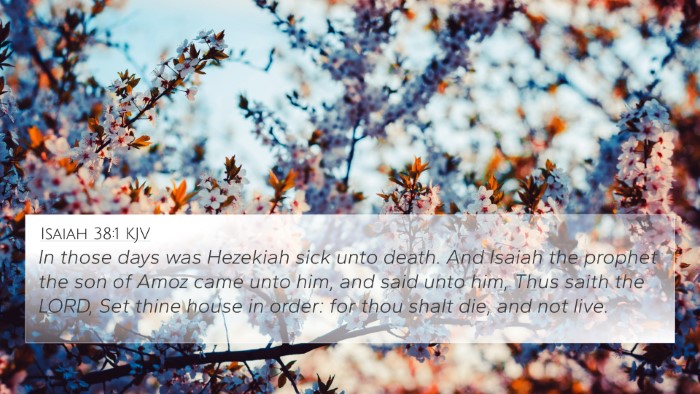 Isaiah 38:1 (KJV) »
Isaiah 38:1 (KJV) »
In those days was Hezekiah sick unto death. And Isaiah the prophet the son of Amoz came unto him, and said unto him, Thus saith the LORD, Set thine house in order: for thou shalt die, and not live.
 2 Chronicles 32:24 (KJV) »
2 Chronicles 32:24 (KJV) »
In those days Hezekiah was sick to the death, and prayed unto the LORD: and he spake unto him, and he gave him a sign.
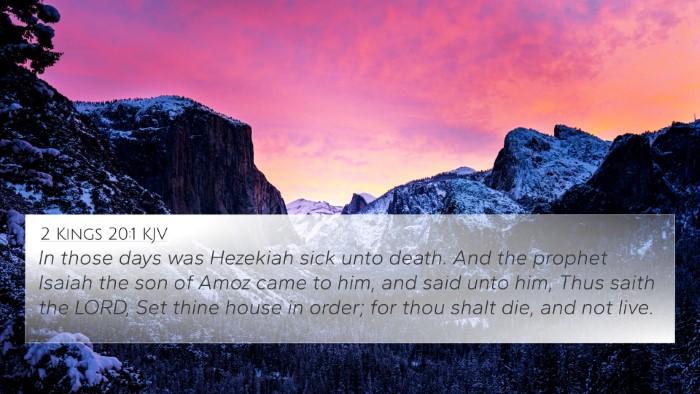 2 Kings 20:1 (KJV) »
2 Kings 20:1 (KJV) »
In those days was Hezekiah sick unto death. And the prophet Isaiah the son of Amoz came to him, and said unto him, Thus saith the LORD, Set thine house in order; for thou shalt die, and not live.
 2 Samuel 17:23 (KJV) »
2 Samuel 17:23 (KJV) »
And when Ahithophel saw that his counsel was not followed, he saddled his ass, and arose, and gat him home to his house, to his city, and put his household in order, and hanged himself, and died, and was buried in the sepulchre of his father.
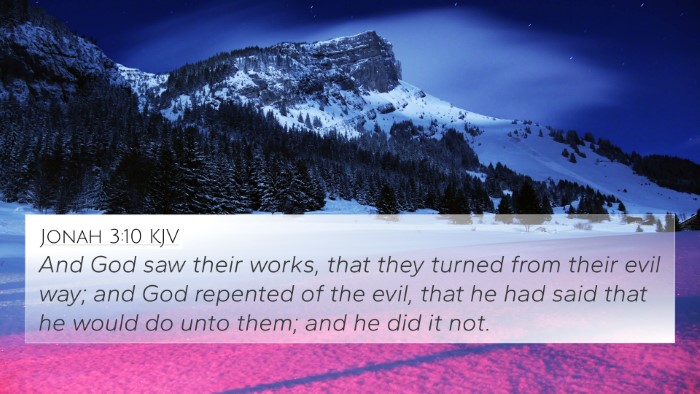 Jonah 3:10 (KJV) »
Jonah 3:10 (KJV) »
And God saw their works, that they turned from their evil way; and God repented of the evil, that he had said that he would do unto them; and he did it not.
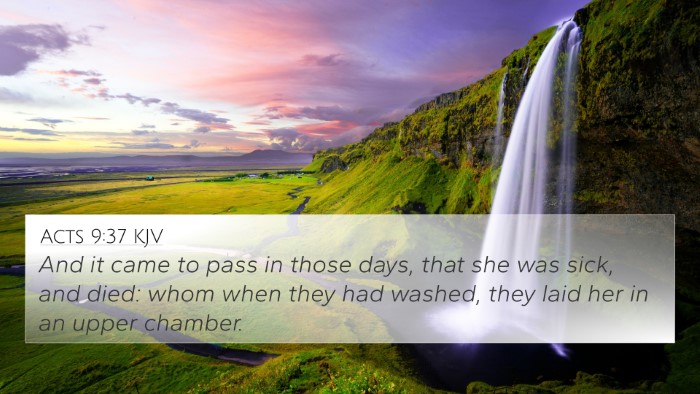 Acts 9:37 (KJV) »
Acts 9:37 (KJV) »
And it came to pass in those days, that she was sick, and died: whom when they had washed, they laid her in an upper chamber.
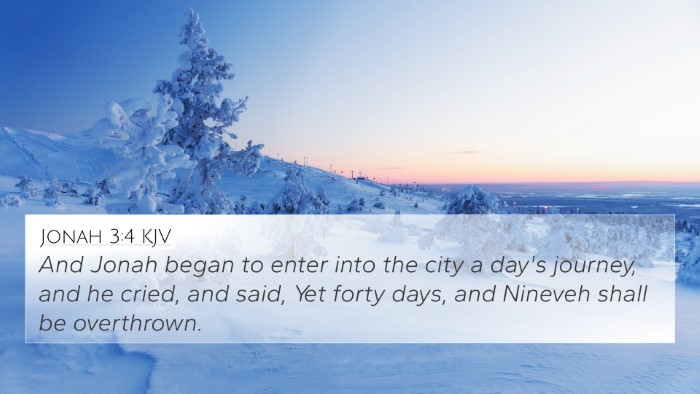 Jonah 3:4 (KJV) »
Jonah 3:4 (KJV) »
And Jonah began to enter into the city a day's journey, and he cried, and said, Yet forty days, and Nineveh shall be overthrown.
 Jeremiah 18:7 (KJV) »
Jeremiah 18:7 (KJV) »
At what instant I shall speak concerning a nation, and concerning a kingdom, to pluck up, and to pull down, and to destroy it;
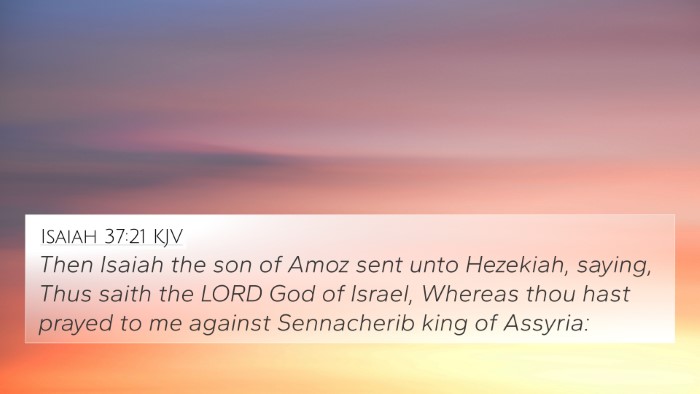 Isaiah 37:21 (KJV) »
Isaiah 37:21 (KJV) »
Then Isaiah the son of Amoz sent unto Hezekiah, saying, Thus saith the LORD God of Israel, Whereas thou hast prayed to me against Sennacherib king of Assyria:
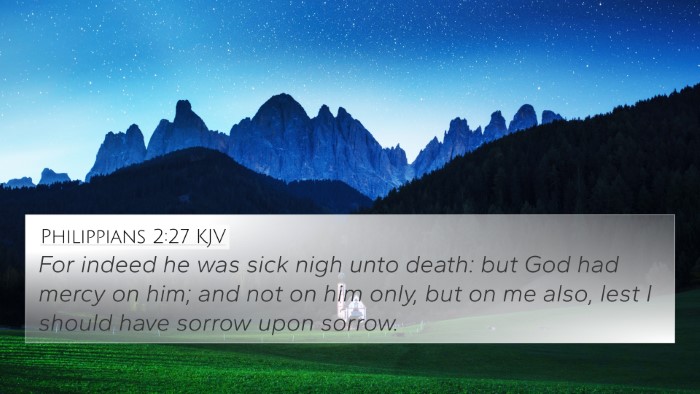 Philippians 2:27 (KJV) »
Philippians 2:27 (KJV) »
For indeed he was sick nigh unto death: but God had mercy on him; and not on him only, but on me also, lest I should have sorrow upon sorrow.
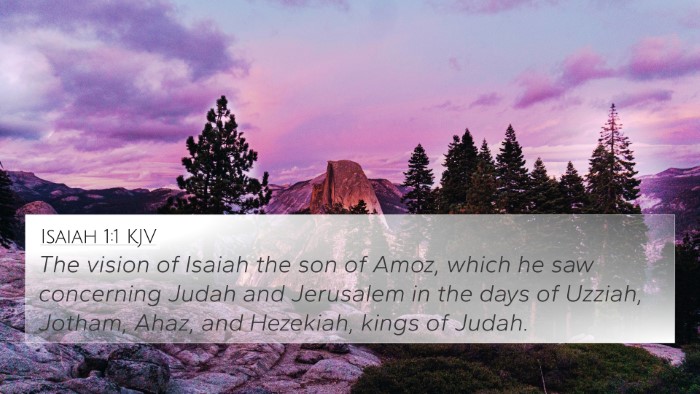 Isaiah 1:1 (KJV) »
Isaiah 1:1 (KJV) »
The vision of Isaiah the son of Amoz, which he saw concerning Judah and Jerusalem in the days of Uzziah, Jotham, Ahaz, and Hezekiah, kings of Judah.
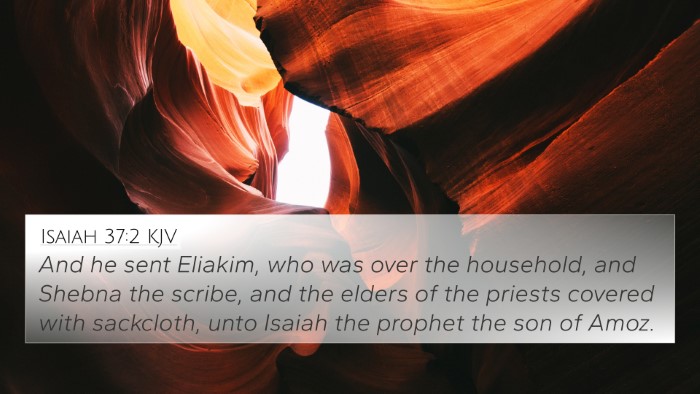 Isaiah 37:2 (KJV) »
Isaiah 37:2 (KJV) »
And he sent Eliakim, who was over the household, and Shebna the scribe, and the elders of the priests covered with sackcloth, unto Isaiah the prophet the son of Amoz.
 Ecclesiastes 9:10 (KJV) »
Ecclesiastes 9:10 (KJV) »
Whatsoever thy hand findeth to do, do it with thy might; for there is no work, nor device, nor knowledge, nor wisdom, in the grave, whither thou goest.
 John 11:1 (KJV) »
John 11:1 (KJV) »
Now a certain man was sick, named Lazarus, of Bethany, the town of Mary and her sister Martha.
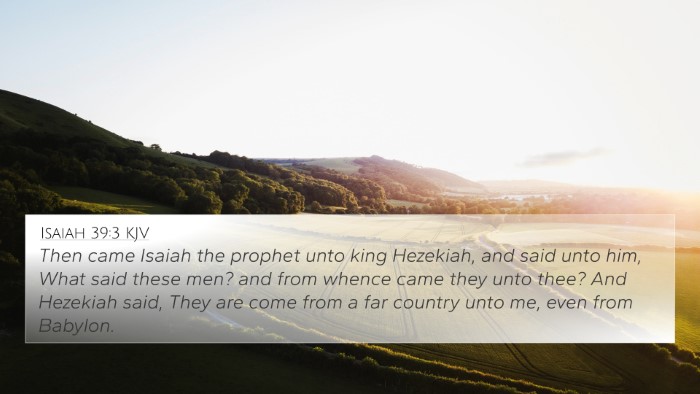 Isaiah 39:3 (KJV) »
Isaiah 39:3 (KJV) »
Then came Isaiah the prophet unto king Hezekiah, and said unto him, What said these men? and from whence came they unto thee? And Hezekiah said, They are come from a far country unto me, even from Babylon.
